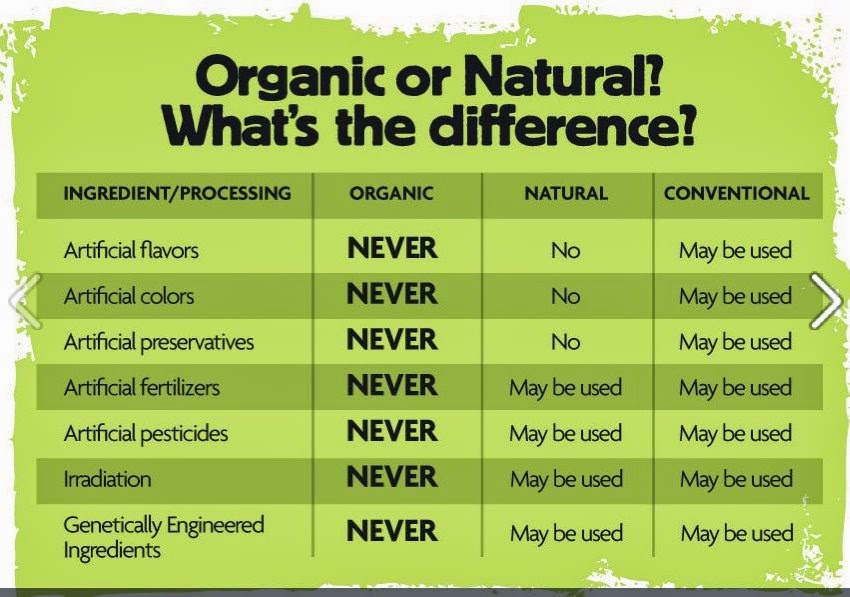Advantages of Organic Foods
What does “Organic Food” even mean, anyway?
To call a food organic simply means that it’s been produced using environmentally sound methods – methods that emphasize the use of renewable resources, soil conversation, and water conservation to keep a high quality growing environment.Organic foods are produced without pesticides & chemical fertilizers. They don’t have genetically modified organisms, are not processed with irradiation, industrial solvents, or with chemical food additives.
Reasons To Choose Organic Foods
1. Organic Farming is less toxic for the environment.
 Industrial farming uses synthetic pesticides, which can drift
downstream and cause serious damage to non-farming communities. These
farming methods can damage the soil and make it harder to grow
Industrial farming uses synthetic pesticides, which can drift
downstream and cause serious damage to non-farming communities. These
farming methods can damage the soil and make it harder to grow healthy crops for future generations. Organic farming limits these toxic chemicals in our environment.
2. Organic Farming is better for your body.
When foods are grown with pesticides & chemicals, where do you think those chemicals end up? Pesticides can do decrease fertility, increase your risk of cancer, and do damage to your nervous system. Organic foods generally have higher levels of vitamins, minerals, and antioxidants than their conventional counterparts.
3. Organic Food Tastes Great!
The truth is, organic food simply tastes better. It makes sense that the food that is grown in a real growing environment would be more flavorful.
4. Helps Local & Family Farmers
While organic farming has grown from nothing to a $51 billion dollar industry in the span of around 20 years, only .7% of the total worlds farmland is organically farmed. There are over 13,000 certified organic producers in the United States. The more demand for organic food, the bigger the industry will get. And as the industry grows, more farms will use organic farming methods to satisfy the demand. So it’s a win-win! You eat organic foods, and more organic foods get farmed.
5. Organic Food Meets Strict USDA Standards
The USDA has created standards for organic foods and organic farming designed to protect you when purchasing organic foods. Organic foods are safe, good for you, and highly regulated to make sure that you continue to be safe in choosing organic foods.
6. More Nutrients
The European Union funded study found that organic fruit and vegetables have up to 50% more antioxidants, which scientists believe can cut the risk of cancer and heart disease. They have also more vitamins and minerals such as iron and zinc.According to other recent studies, organic foods are better for fighting cancer. And people eating organic food have improved immune system, better sleeping habits and are less likely to be overweight than when eating "conventional" foods. (Can you imagine the benefits of eating both raw and organic food?)






